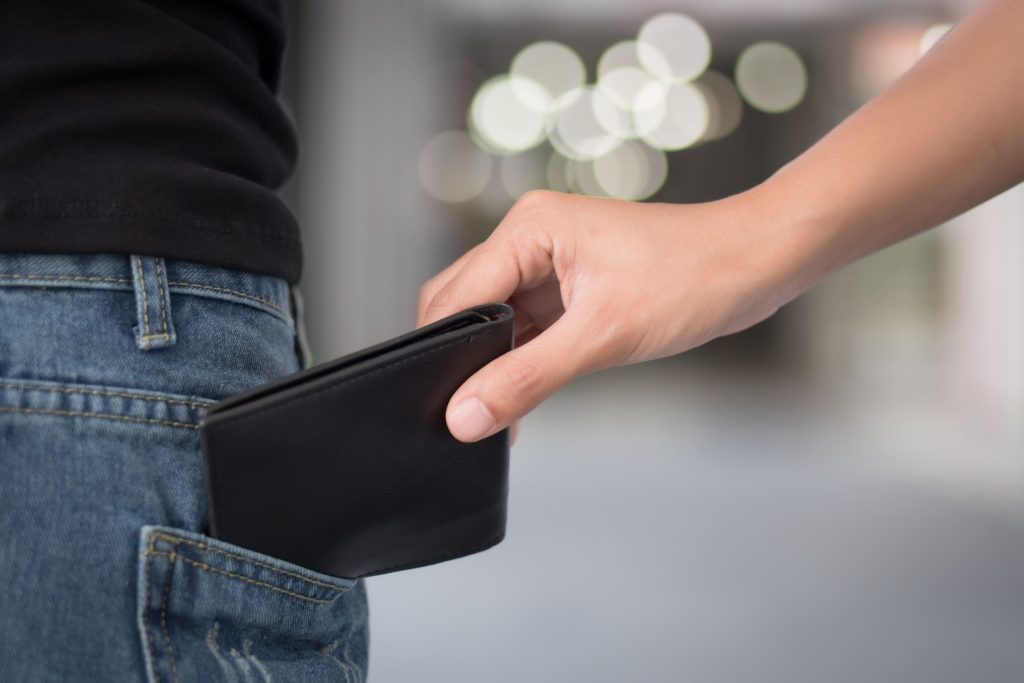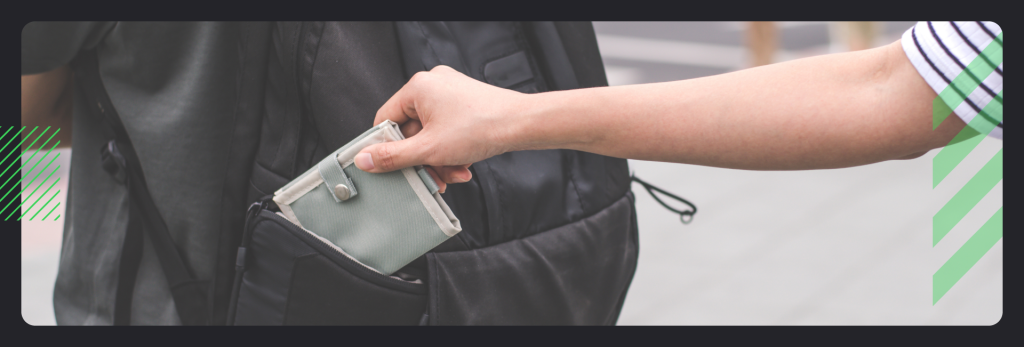In bustling urban areas, pickpocketing remains a prevalent issue that can quickly turn an enjoyable outing into a stressful experience. Understanding the current crime rates, common hotspots, and effective prevention strategies can help you stay one step ahead of pickpockets. This guide delves into the details of pickpocketing in cities, especially in places like London, and offers practical tips to protect yourself.
Current Crime Rates for Pickpocketing
Pickpocketing has been a persistent problem in many major cities worldwide. In London, pickpocketing incidents have been on the rise, particularly in areas with high tourist traffic. According to recent statistics, the number of pickpocketing cases reported in London has increased by 15% over the past year. Busy public transport hubs, shopping districts, and popular tourist attractions are often targeted by thieves.
Popular Places to Be Pickpocketed

Pickpockets often target areas where crowds gather, making it easier to blend in and escape quickly. Here are some of the most common locations in the UK where pickpocketing incidents are reported:
The Tube in London
The London Underground is a prime spot for pickpockets, especially during peak hours. According to the British Transport Police, there were over 7,000 reported incidents of pickpocketing on the Tube in 2023. Stations such as Oxford Circus, King’s Cross, and Victoria are particularly notorious. These busy interchange stations see thousands of commuters daily, providing a perfect cover for thieves. The British Transport Police has increased patrols and surveillance in these areas, but commuters are still advised to stay vigilant.
Busy Shopping Areas
Crowded shopping streets like Oxford Street and Regent Street are hotspots for pickpocketing. With an influx of shoppers and tourists, these areas provide ample opportunities for pickpockets to strike. The Metropolitan Police reported over 2,500 incidents of pickpocketing in these shopping districts in the last year alone.
Retailers and local authorities have been working together to implement better security measures, but individuals should remain cautious and aware of their surroundings.
Tourist Attractions
Popular tourist destinations such as the British Museum, Buckingham Palace, and the Tower of London are common places where pickpockets operate. According to VisitBritain, these sites attract millions of visitors annually, making them attractive targets for thieves. In 2023, there were over 1,800 reported cases of pickpocketing at major tourist attractions in London. Tourists are often distracted by the sights and less familiar with their surroundings, making them more vulnerable to theft.
Public Transport
Buses and trams, especially during rush hours, are also frequent targets for pickpockets. Data from Transport for London (TfL) shows that there were over 4,000 reported incidents of pickpocketing on buses in 2023. Routes passing through central London and major shopping areas are particularly affected. TfL has been working to improve security by increasing the presence of uniformed officers and installing more CCTV cameras on public transport.
Tips for Preventing Pickpocketing
1. Stay Vigilant in Crowded Places
Crowded places such as public transport hubs, tourist attractions, and shopping centres are prime targets for pickpockets. A study by the British Transport Police revealed that pickpocketing incidents on the London Underground increased by 20% in the past year. Always be aware of your surroundings and keep your belongings close.
2. Use Anti-Theft Accessories
Investing in anti-theft bags and accessories can significantly reduce the risk of pickpocketing. Bags with lockable zippers, RFID-blocking pockets, and slash-resistant straps offer an extra layer of security. According to consumer reports, sales of anti-theft bags in the UK have risen by 15% in the last three years, reflecting a growing awareness among the public.
3. Keep Valuables Hidden
Avoid displaying expensive items such as smartphones, jewellery, and wallets in public. The Metropolitan Police advise that keeping valuables out of sight can deter potential thieves. In 2023, over 60% of pickpocketing incidents involved mobile phones, highlighting the importance of discretion.
4. Be Cautious of Distractions
Pickpockets often work in teams and use distractions to divert your attention. Common tactics include asking for directions, spilling something on you, or creating a commotion. The City of London Police have reported that many victims of pickpocketing were distracted just moments before the theft occurred. Stay focused and be wary of strangers trying to engage you unexpectedly.
5. Report Suspicious Activity
If you notice any suspicious behaviour, report it to the authorities immediately. Quick reporting can help prevent further incidents and increase the chances of catching the culprits. In 2023, collaborative efforts between the public and police in major cities like Manchester and Birmingham led to a 10% reduction in pickpocketing cases.
What to Do If You Are Pickpocketed
Pickpocketing can be a distressing experience, but staying calm and taking swift action is crucial. Here’s what you should do if you find yourself a victim:
1. Stay Calm and Assess
First things first, take a deep breath and try to stay calm. Quickly assess what has been taken. Check your immediate surroundings to see if the thief is still nearby. Sometimes, pickpockets work in teams, so be cautious and aware of any suspicious activity around you.
2. Report to Authorities
Inform the local authorities or security personnel as soon as possible. If you are in London and the incident occurred on the Tube, you can contact the British Transport Police by texting 61016 or calling 0800 40 50 40. Providing a prompt report can help increase the chances of recovering your stolen items.
3. Cancel Cards
If your wallet or phone has been stolen, it’s vital to act quickly. Contact your bank to cancel your cards and prevent any unauthorised transactions. Additionally, notify your mobile service provider to block your phone and protect your personal information.
4. File a Police Report
Filing a report with the local police is essential, especially if you need to make an insurance claim. Provide as much detail as possible about the incident, including the time, location, and description of any suspects. This can also assist the police in their investigation and help prevent future incidents.
5. Track and Lock Your Phone
If your phone has been stolen, use tracking apps to locate it. Most smartphones have built-in features like “Find My iPhone” for Apple devices or “Find My Device” for Android. These tools allow you to lock your phone remotely, preventing the thief from accessing your personal data. If necessary, you can also wipe your phone’s data to ensure your information remains secure.
How Get Licensed is Contributing to Security in Urban Areas
At Get Licensed, we train and certify security professionals who play a vital role in preventing and responding to pickpocketing incidents. Our comprehensive security training programmes cover crucial skills such as surveillance, crowd control, and conflict resolution. Well-trained security officers and stewards can effectively monitor busy areas, identify suspicious behaviour, and intervene promptly to prevent thefts. Their presence not only deters potential pickpockets but also provides a sense of security for the public.
Conclusion
Pickpocketing in busy urban areas is a common but preventable issue. By staying vigilant and following these safety tips, you can significantly reduce the risk of falling victim to pickpockets. Remember, being aware and prepared is your best defence against theft.


